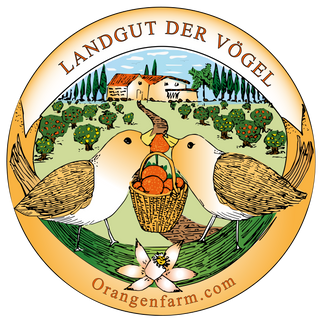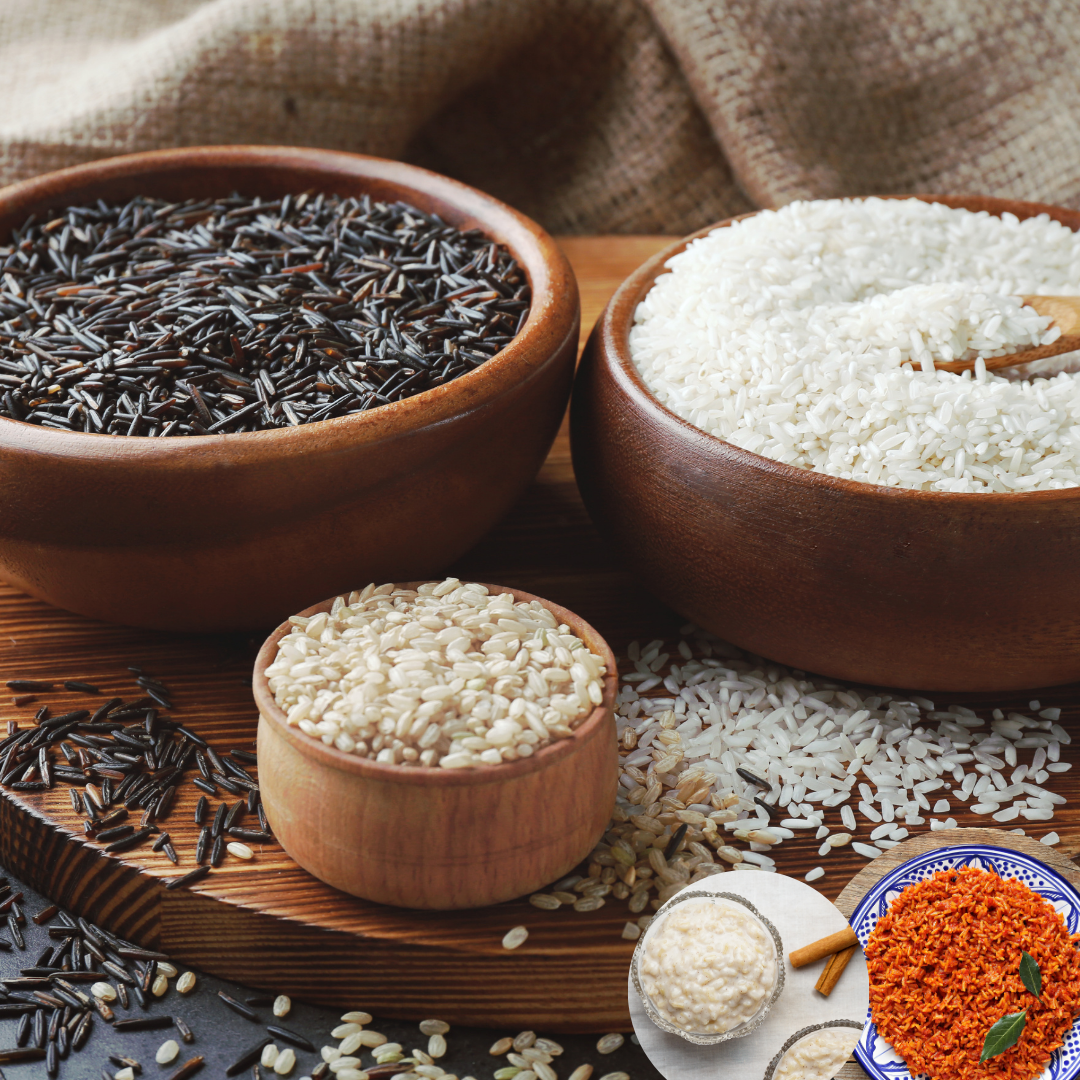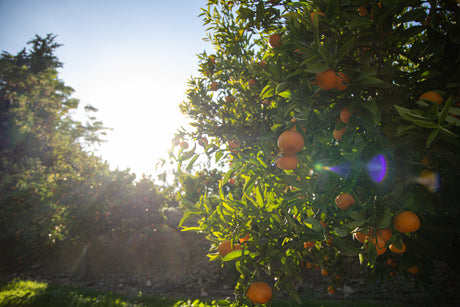Rice from Portugal: tradition, taste and variety
Portugal is known not only for its breathtaking landscapes and rich culture, but also for its traditional rice production. The country's most important rice variety is Carolino rice, which plays a central role in Portuguese cuisine. Thanks to its special properties and Protected Geographical Indication (IGP), it is the preferred choice for many classic dishes.
Carolino Reis – Portugal’s pride
Carolino rice is a medium- to short-grain variety that develops a creamy, slightly sticky texture when cooked and absorbs flavors particularly well. These qualities make it ideal for traditional Portuguese dishes such as:
- Arroz de Marisco (Seafood Rice)
- Arroz de Pato (duck rice)
- Arroz Doce (rice pudding)
- Arroz de Tomate (Tomato Rice)
Growing areas
Carolino rice is grown exclusively in Portugal, mainly in three regions:
- Lezíria do Tejo (Ribatejo) – fertile alluvial plain along the Tejo River
- Baixo Mondego (Central Portugal) – ideal wetlands for rice cultivation
- Sado Valley (Alentejo) – historic region with excellent conditions
These regions are known for their high-quality soils and mild climate, creating optimal growing conditions for Carolino rice. Furthermore, Carolino rice from Portugal enjoys Protected Geographical Indication (IGP) status, meaning that only rice from specific Portuguese regions can be sold as genuine Carolino rice.
Other rice varieties in Portugal
In addition to Carolino rice, there are other popular rice varieties in Portugal:
- Agulha Rice : A long-grain rice that stays fluffy and is often used as a side dish. Also grown in Portugal.
- Basmati rice : Originally from India and Pakistan, it is also appreciated in Portugal for its flavor. However, Basmati rice is not grown in Portugal but imported.
- Risotto rice : Usually Arborio or Carnaroli, which develops a creamy consistency but is also imported from abroad.
- Whole grain rice : Nutritious alternative with a nutty flavor, available from Portuguese cultivation and imports.
- Sushi rice : Special sticky rice for sushi that is not grown in Portugal but imported.
- Black rice : A rare, antioxidant-rich rice variety used in fine dining and imported.
Why buy imported rice from Portuguese brands?
Even though some rice varieties such as Basmati or Sushi rice are not grown in Portugal, there are good reasons to buy them from Portuguese brands such as Oriente, Saludães or Caçarola:
- Strict quality control – Portuguese producers carefully select their imported products and ensure that they meet the highest quality standards. Imported rice is often further processed, inspected, and packaged in Portugal.
- Trust in the brand – Those who are already familiar with the quality of Portuguese rice can rest assured that imported varieties are also offered with the same care.
- Sustainability and ethics – Many Portuguese producers, including Novarroz (Oriente), place great emphasis on sustainable sourcing and fair trade practices. They work with trusted international suppliers to offer environmentally friendly rice.
- Convenience and variety – By importing specialty rice varieties, Portuguese consumers and restaurants can enjoy a wide selection without having to rely on different brands from different countries.
- Regional processing and added value – Even if the rice isn't grown in Portugal, local companies benefit from its processing, packaging, and distribution. This ensures that part of the added value remains in Portugal.
Renowned rice producers in Portugal
- Bom Sucesso: Produced by Orivárzea, the largest Carolino rice producer in Europe. The fields are located in the Lezíria Ribatejana region. Orivárzea is known for its sustainable cultivation and relies on innovative water management technologies.
- Caçarola: A traditional brand with over 50 years of experience, offering not only rice but also pulses and other grain products. Caçarola maintains high quality standards and is one of the leading brands in the Portuguese market.
- Saludães: Offers a wide selection of rice varieties, including Carolino, Agulha, parboiled, whole wheat, and Basmati. Saludães is particularly known for its modern production technology and strict quality controls.
- Oriente: A Novarroz brand specializing in the production and export of various rice varieties. While Carolina and Agulha rice originate from Portugal, Basmati and Sushi rice are imported. Novarroz is one of Europe's leading rice trading companies and places great emphasis on sustainability and innovative processing methods.
Two simple recipes with Carolino rice
Arroz de Tomate (Portuguese tomato rice)

Ingredients:
- 250 g Carolino rice
- 2 ripe tomatoes (diced) or 200 g strained tomatoes
- 1 small onion (chopped)
- 2 garlic cloves (chopped)
- 500 ml vegetable stock
- 2 tbsp olive oil
- 1 bay leaf
- salt and pepper
- Fresh parsley for garnishing
Preparation:
- Heat the olive oil in a pot and sauté the onion until translucent.
- Add the garlic and fry briefly.
- Add the diced tomatoes or passata and simmer for about 5 minutes until the sauce thickens.
- Stir in the Carolino rice and sauté briefly.
- Add the stock and bay leaf, season with salt and pepper and mix well.
- Simmer over low heat for about 15–18 minutes, until the rice is soft and slightly creamy, stirring occasionally.
- Remove the bay leaf and garnish the rice with freshly chopped parsley.
Serving suggestion:
Arroz de Tomate is a great side dish to grilled fish, meat or simply served with a fried egg.
Arroz Doce (Portuguese rice pudding)

Ingredients:
- 150 g Carolino rice
- 500 ml water
- 1 pinch of salt
- 1 liter of milk
- 150 g sugar
- 1 cinnamon stick
- Peel of half a lemon
- 3 egg yolks
- 1 tbsp butter
- Cinnamon for sprinkling
Preparation:
- Bring the rice to a boil in a pot with water and a pinch of salt. Simmer over medium heat until the water has almost completely evaporated.
- Add the milk, cinnamon stick, and lemon zest. Simmer over low heat, stirring occasionally, until the rice is soft and creamy (about 20–25 minutes).
- Stir in the sugar and simmer for another 5 minutes.
- Remove the cinnamon stick and lemon peel.
- Mix the egg yolks with a little warm milk from the pot, then slowly stir into the rice pudding.
- Add the butter and mix well. Remove from heat.
- Pour the rice pudding into bowls and sprinkle with cinnamon.
Tip: The rice pudding tastes good warm or cold and is traditionally decorated with a cinnamon pattern.
Conclusion
Portuguese rice production combines tradition, quality, and sustainable cultivation methods. Carolino rice, in particular, is at the heart of the national cuisine and is distinguished by its protected origin and excellent cooking properties. However, other rice varieties, whether grown in Portugal or imported from renowned brands such as Bom Sucesso, Caçarola, Saludães, and Oriente, also contribute to culinary diversity. Thanks to strict quality controls and sustainable sourcing, Portuguese producers offer a high degree of reliability, even with imported rice varieties. Choosing rice from Portugal is not only choosing enjoyment, but also a product steeped in history, innovation, and responsibility.
Try the rice now!



